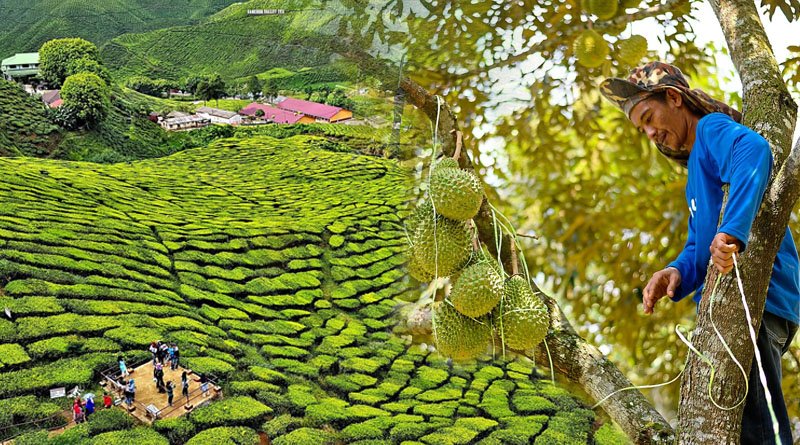Through MAT, the Japanese will assume up to 49 percent of the joint venture partnership, with the entirety of the joint venture company valued at RM371 million.

PLS LESB will collaborate with Japan’s Millennium Agriculture Technology (MAT) and MyFarm Inc., Japan (MyFarm), to develop a durian plantation in Pahang spanning up to 1,000 hectares.
PLS LESB Sdn Bhd, a 51%-owned subsidiary of PLS Plantation, has signed a heads of agreement (HoA) to form a joint venture and launch a large-scale durian cultivation project in Malaysia.
Through MAT, the Japanese will assume up to 49 percent of the joint venture partnership, with the entirety of the joint venture company valued at RM371 million.
Tan Sri Lim Kang Hoo, who owns 73% of PLS Plantation through Ekovest Bhd, said the joint venture partnership would pave the way for Japanese technology transfer and participation in Malaysia’s long-term food security programme.
“This is consistent with PLS Plantation’s vision of becoming Malaysia’s leading sustainable agrofood company,” the company stated. According to Lim, the JV will facilitate the transfer of Japanese agricultural technology and expertise on a scale never before seen in Malaysia.
“It will strengthen PLS’ core competencies as a leading exporter of high-quality agricultural and aquaculture produce,” Lim said.
MyFarm, in collaboration with Tokyo Agricultural University, operates one of the largest agricultural schools, producing 2,300 graduates over the last 12 years.
Japan’s National Federation of Agricultural Cooperative Associations, Tsumura & Co. (a Japanese herbal medicine manufacturer listed on the Tokyo Stock Exchange), Nichiryu Nagase Co., Ltd. (a leading Japanese distributor of agricultural machinery and farm products), DCM Holdings Co., Ltd. (one of Japan’s largest home improvement businesses), and SB Technology Co., Ltd. are among MyFarm’s shareholders (previously known as Softbank Technology Corp.).
As part of the Japanese investment, which is expected to be completed this year, modern Japanese agricultural practises will be used to plant the “Musang King” durian species.
Durian is a tropical fruit that is known for its strong and distinctive smell, as well as its spiky exterior. It is grown in many tropical regions of the world, including Southeast Asia, where it is particularly popular. Durian is a challenging fruit to grow, as it requires a specific climate and soil type, as well as a specific pollination process.
Durian plantation usually starts with the selection of the right durian variety that is suited to the local climate, soil, and market demand. Durian trees can take several years to bear fruit, and once they do, they can continue to produce fruit for several decades.
